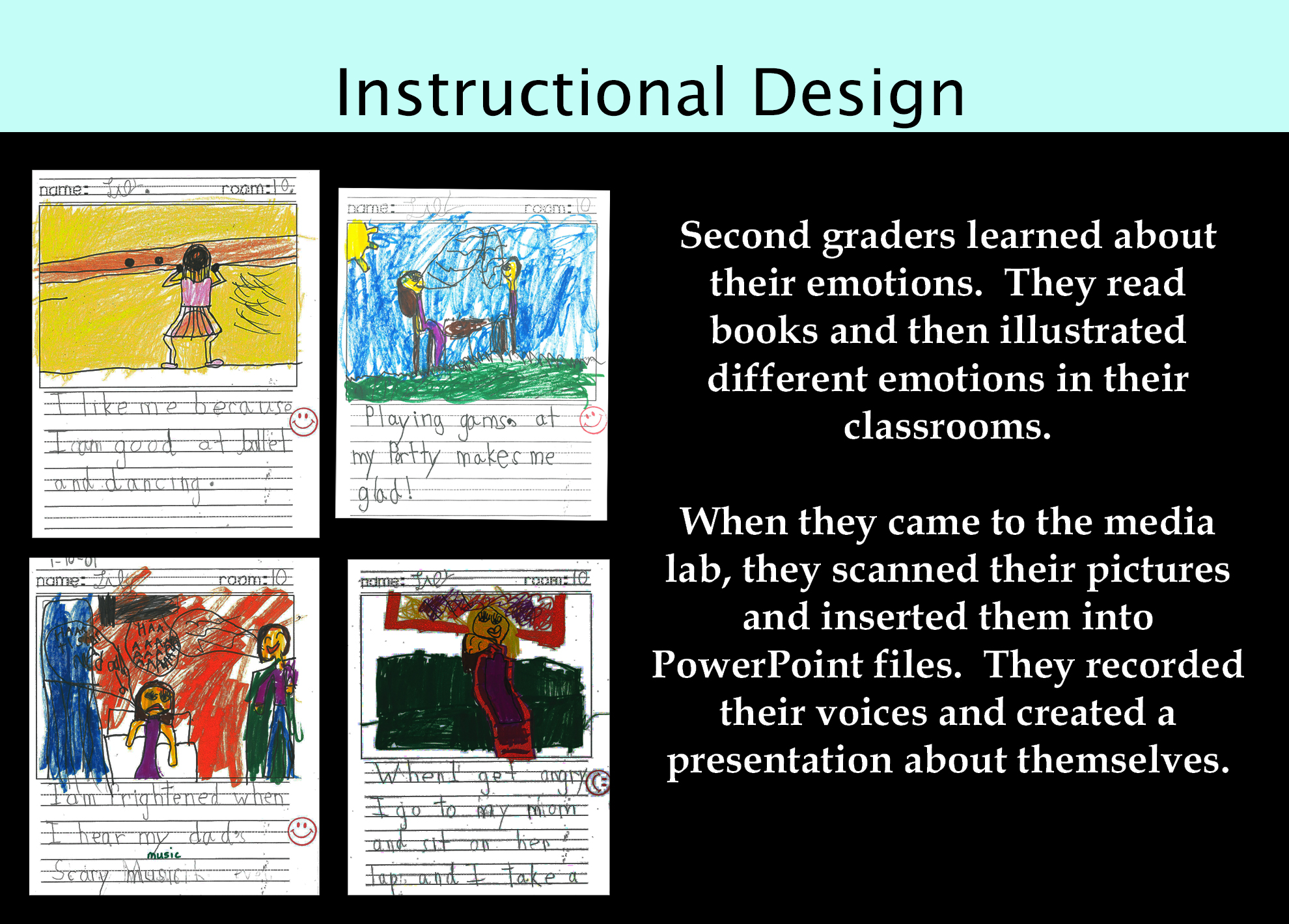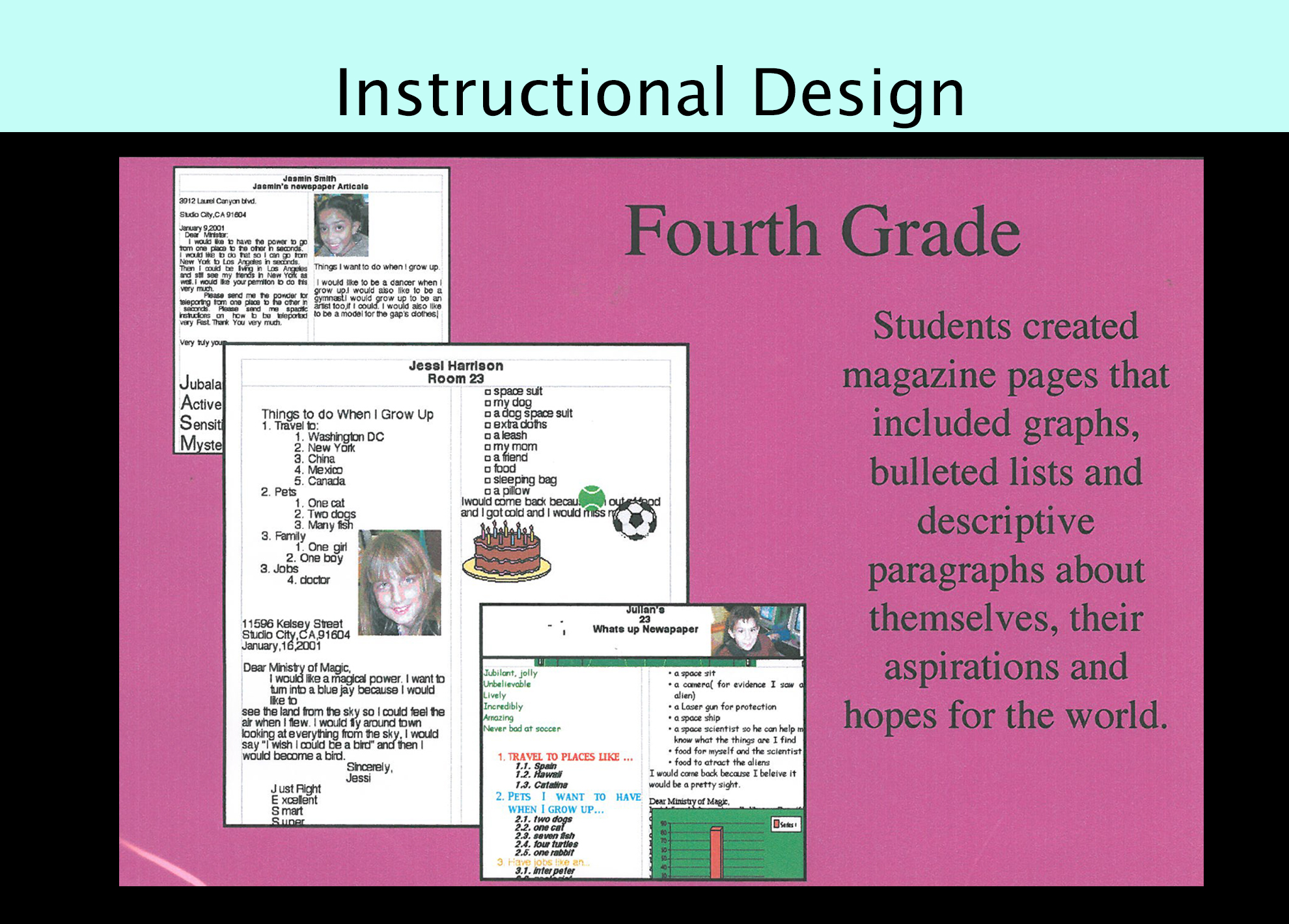Click on an image to scroll through the gallery.
I have designed projects for Kindergarten through 12th Grade students. I've created online courses to support district mandated presentations and to deliver content regarding technology tools and applications available to teachers.
My passion for technology projects started in the late 1990's as an elementary school computer lab teacher. I integrated classroom content with media lab projects. My kindergartners created animated counting books and that was just the beginning. In my current position, teachers will ask for an introductory lesson integrating technology. The audio file below was from a poetry project based on the poem "Where I'm From" by George Ella Lyons. As you can hear, it's a powerful project where students develop their writing as well as their voice using free voice recording software. Another favorite project was the Festivals of Louisiana project in which third graders were each assigned a festival and found their festival location in google maps. Could they drive and come back in the same day? Did they need to stay the night? When 6th grade students were working on area and diameter, we went to Google Earth to measure buildings that are "wonders of the world". Students used google earth tools to take measurements and post them on a classroom wiki. Then they would ask a measurement question at the end of their post. Other students would be able to reply with their answers and a new question.
When doing a project on Route 66 I helped a class create postcards from places along the way. The teacher had her students write letters to visitor centers in the various cities. My brain goes to how about comparing how long it takes to get a reply from a letter verses an email? How would the information they got back be different? How about creating a Route 66 interactive map in Google Earth?
It's not enough to turn on laptops and deliver information in the same way you would with paper and pencil. It's time to teach "as if Google exists". To ask bigger questions that can't be looked up and copied but synthesized. Don't use PowerPoint to make a slide show, include hyperlinks for cause and effect, create an animated movie that requires understanding of the concepts and allows students real world problem solving experiences. Create opportunities for students to publish there work for more than the classroom teacher, publish an online student magazine. Make their writing count.








